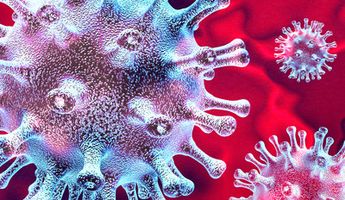Coronavirus Treatment in Belgium
Find the best clinics for Coronavirus Treatment in Belgium
No pricing info available
Malaysia offers the best prices Worldwide
Price: $ 64
From 103 verified reviews
alain touillet, 19 September 2020
perfect alleen beter de afspraken respecteren worden heel vaak verlegt
From 103 verified reviews
Adam Soverg, 16 September 2020
Медevery medical worker with whom I happened to be a patient in this hospital is a professional in his field.
From 44 verified reviews
dora de Wilde, 21 March 2020
Optimal care, located in an oasis of green. You will relax there, even when you are sick ...
From 42 verified reviews
Mark Henderickx, 04 April 2020
After a fall with a bicycle on a fast, friendly, adequate help.Top team, tnx Marcus Henderickx
Antwerp Hospital Network ZNA, can be found in Lindendreef, Antwerp, Belgium and offers its patients Coronavirus Treatment procedures as well as 217 other procedures, across 23 different procedure categories. At present, there is no pricing information for Coronavirus Treatment procedures at Antwerp Hospital Network ZNA. The pricing information is quite specialised, so it's only available on request. Currently, there's no information available about the doctors at the Hospital, and Antwerp Hospital Network ZNA is not accredited by any recognised accreditations institutions.
WHY US?
At Medijump, we're making medical easy. You can search, compare, discuss, and book your medical all in one place. We open the door to the best medical providers worldwide, saving you time and energy along the way, and it's all for FREE, no hidden fees, and no price markups guaranteed. So what are you waiting for?

Free

Best Price

Widest Selection

Risk-Free
What you need to know about Coronavirus Treatment in Belgium

Late 2019, authorities identified a new coronavirus outbreak in China that has now reached other countries. The virus is known as severe acute respiratory syndrome coronavirus 2 (SARS-CoV-2), while the disease is called coronavirus disease 2019 (COVID-19) and also known as Wu Han Virus, after the city, it is believed to have originated from. If you have the symptoms of COVID-2019 or you have possibly been exposed to the virus, contact your doctor immediately to get proper help and advice and seek Coronavirus Testing.
What does the Procedure Involve?
There are currently no antiviral medications recommended to treat COVID-19. Treatment is mostly aimed at relieving symptoms, which may include cough syrup or medication, pain relievers, rest, and fluid intake. If your doctor thinks that you can be treated at home, you will be given special instructions, such as isolating yourself as much as possible from anyone (including family) and staying at home for a period of time. In severe cases, you may need to be treated in the hospital and stay in isolation away from other people until you have recovered.
How Long Should I Stay in Belgium?
The length of stay in the hospital and in Belgium can vary. If you are in Hospital, at Home, on Holiday you will be quarantined and you will continue to undergo throat swabs for the virus for 5 to 14 days. This is to determine if you are still contagious and will mean you will need to stay in the country and avoid being in close contact with anyone for at least two weeks while you recover.
What's the Recovery Time?
Recovery time of COVID-19 varies, depends on the severity of the disease, your overall health, and your age. According to Harvard Health, people who have mild symptoms may recover within a few days, while those with pneumonia will need more time (ranging from days to weeks). In severe, life-threatening cases, it may take months for the person to recover.
What About Aftercare?
Since it is common for viruses to exist in low levels within the body even after recovery, you will still need to be careful, particularly in your household setting. Do not share drinks or food and ensure that you wash your hands frequently. Always take the necessary precautions to avoid spreading the disease while at home or anywhere else. Bear in mind that recovery does not necessarily make you immune to the disease.
What's the Success Rate?
Little is known about the virus. Investigations and research about the virus are still ongoing, so the exact number of success rates and mortality rates are likely to change further as more cases are confirmed. Several groups of people have a high risk of developing complications due to the disease, including very young children, people aged 65 or older, and women who are pregnant. Those with any pre-existing health conditions are also at high risk.
Are there Alternatives to Coronavirus Treatment?
There are currently no alternatives to coronavirus treatment. There is also no vaccine available to prevent infection. However, prevention is best. Always follow the standard precautions, such as washing your hands with soap and water frequently.
What Should You Expect Before and After the Procedure
Before treatment, you may experience symptoms of the coronavirus and you may have spread it to other people. Theirs is also a small chance that the disease may become life-threatening. After Isolation and rest, any symptoms should be relieved and your chance of spreading the virus to other people will be reduced.
Whilst the information presented here has been accurately sourced and verified by a medical professional for its accuracy, it is still advised to consult with your doctor before pursuing a medical treatment at one of the listed medical providers
No Time?
Tell us what you're looking for and we'll reachout to the top clinics all at once
Enquire Now

Popular Procedures in Belgium
Prices Start From $22,731

Recommended Medical Centers in Belgium for Coronavirus Treatment

- Interpreter services
- Translation service
- Religious facilities
- Medical records transfer
- Medical travel insurance
- Health insurance coordination
- TV in the room
- Safe in the room
- Phone in the room
- Private rooms for patients available

- Interpreter services
- Translation service
- Religious facilities
- Medical records transfer
- Medical travel insurance
- Health insurance coordination
- TV in the room
- Safe in the room
- Phone in the room
- Private rooms for patients available

- Interpreter services
- Translation service
- Religious facilities
- Medical records transfer
- Medical travel insurance
- Health insurance coordination
- TV in the room
- Safe in the room
- Phone in the room
- Private rooms for patients available

- Interpreter services
- Translation service
- Religious facilities
- Medical records transfer
- Medical travel insurance
- Health insurance coordination
- TV in the room
- Safe in the room
- Phone in the room
- Private rooms for patients available

- Interpreter services
- Translation service
- Religious facilities
- Medical records transfer
- Medical travel insurance
- Health insurance coordination
- TV in the room
- Safe in the room
- Phone in the room
- Private rooms for patients available





